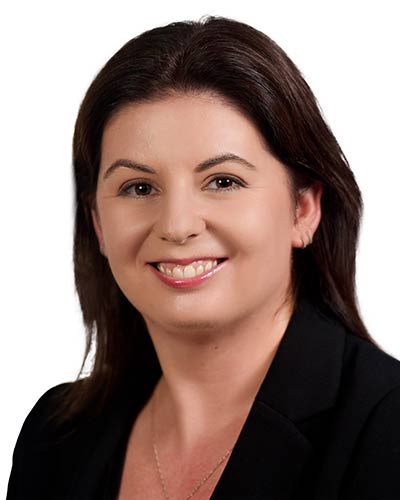Corporate flexibility and ease of navigation can explain the increasing popularity of the British Virgin Islands among Asian fund managers, virtual asset businesses and special purpose acquisition companies
BVI still at forefront of cross-border business
The special report, “2022 Offshore solutions in the British Virgin Islands (BVI)”, delves into the products and services offered by Asia’s offshore jurisdiction of choice – the BVI. In 2022, there are many reasons to be optimistic about a resurgence in global investment, growth and productivity. Both established and emerging economies, especially in Asia, are displaying impressive resilience and, with the help of global finance and investment, making strides in financial technology and digital infrastructure.

CEO
BVI Finance
Tel: +1 284 852 1950
Email: edonovan@bvifinance.vg
In making this evaluation, one must be conscious of the context of the lingering pandemic and the ongoing Russia and Ukraine crisis, and the potential for both to alter the global economic outlook. Parts of the Asian continent are still recovering from the effects of the pandemic, and this will likely continue for the immediate future.
Whatever lies ahead, the BVI will maintain its strategic partnership with the Asian economies. In the past three decades, the BVI has steadily increased its role in the global financial system, responsible for mediating the equivalent of 6% of all sectors’ total cross-border liabilities, contributing more than USD10 billion in tax to national revenues, and supporting millions of jobs worldwide, according to Capital Economics.
From this investment, the BVI is now able to support business growth, facilitate trade across borders, and enable growing economies and markets to access the finance and investment they need to thrive.
According to Morgan Stanley, Asia will post the largest increase in GDP in the next two years, with an expected expansion in nominal terms from USD33 trillion in 2021 to USD39 trillion in 2023. This potential growth provides a significant development opportunity for the BVI, which has built an enviable reputation in the region. The BVI company has become the premium choice and has been successful for Asian corporates, high net-worth individuals and institutional investors, driving the Asian Tiger economic model and supporting decades of development, jobs and prosperity.
The BVI’s popularity in Asia is built on a winning track record of outstanding corporate legislation, BVI business company brand familiarity, flexibility, cost and tax efficiency, legal certainty, a general ease of doing business, and an unrelenting capacity to innovate. The BVI’s services and products are available from a wide pool of experts who are easily accessible and provide professional services directly in Asia.
With about 75% of companies listed on Hong Kong’s Hang Seng Index having BVI companies incorporated into their structures (according to Capital Economics), the BVI’s support for Asian businesses is evident and always evolving. Recognition by the BVI Financial Services Commission of the Fusang Exchange, an end-to-end digital exchange for security tokens and cryptocurrency, is another example of this. The BVI also continues to strengthen opportunities in financial technology solutions, has launched a fintech regulatory sandbox, and introduced a new fintech training programme in partnership with the National University of Singapore’s School of Computing.
In the next decade, the global economy will continue to evolve as the world rises to meet the challenges that lie ahead. Throughout this, the BVI will remain steadfast in its commitment to facilitating global growth, providing innovative corporate solutions, and remaining at the forefront of developing trends across the world, especially in Asia.
From 30 years of experience working in the region, BVI Finance knows a vibrant Asian economy requires international collaboration. Its role in facilitating cross-border business and providing pathways for investment to flow into established, developing and emerging markets has never been so crucial.

BVI FINANCE
3/F Cutlass Tower
Road Town, Tortola, BVI VG1110
Tel: +1 284 468 4345
Challenges, opportunities with virtual asset regulation in BVI
Regulators globally are wrestling with tough questions as to how virtual assets should be regulated. The past year has seen significant volatility in the prices of major cryptocurrencies. With such volatility, fortunes have been made and lost, with losses often borne by inexperienced retail investors.

Managing Partner
Carey Olsen in Hong Kong
Tel: +852 3628 9006
Email: michael.padarin@careyolsen.com
With an eye to investor protection, some onshore jurisdictions (such as Hong Kong) have proposed that virtual asset exchanges should only be permitted to offer services to professional clients, and would be restricted from serving retail clients. Similarly, the People’s Bank of China in September 2021 published a notice regarding the ban on cryptocurrency and related transactions in mainland China. Indonesian regulators have also recently taken steps to ban financial firms from facilitating cryptocurrency sales.
At the same time, there has been increased interest by virtual asset businesses in offshore jurisdictions such as the British Virgin Islands (BVI).
Attractions of the BVI include its tax neutrality, respected regulator and responsiveness to global regulatory trends, common law legal system, low corporate set-up and maintenance costs, and investor familiarity.
While these attributes are well understood in the “traditional” corporate and finance sectors, they are also proving appealing to businesses operating in the virtual asset space that, in addition to being decentralised by nature, tend to be nimble, innovative and jurisdiction-agnostic in terms of their approach to business.
This article considers the regulatory regime in the BVI as it may apply to cryptocurrency and virtual assets businesses.
REGULATION IN BVI
The BVI does not have a specific regulatory framework for virtual assets or cryptocurrencies, although it is expected that the jurisdiction will in time, in common with other jurisdictions, develop a regulatory framework tailored specifically for virtual assets.
In a guidance issued on 10 July 2020, the BVI Financial Services Commission (FSC) confirmed that the question of whether licensing is required for virtual asset-related activities will be determined under existing financial services legislation.
Cryptocurrency and virtual asset businesses, particularly those with activities that include operating a cryptocurrency exchange or engaging in crypto lending, will need to consider whether their proposed activities fall within any of the following before establishing in the BVI:
- The Banks and Trust Companies Act, 1990 (BTCA) as amended;
- The Financing and Money Services Act, 2009 (FMSA) as amended; and
- The Securities and Investment Business Act, 2010 (SIBA).
ACROSS BORDERS
Any discussion about the regulation of virtual assets in a single jurisdiction would be incomplete without reference to the significant cross-border risks, which are inherent to the decentralised nature of virtual assets.
A key concern is that although virtual asset businesses may, in fact, be appropriately regulated (or not subject to regulation) in a particular jurisdiction, its service offerings may trigger significant regulatory implications in other jurisdictions, as cross-border targeting of investors and customers may require cross-border registration and regulation as well.
Accordingly, compliance with applicable regulations in an offshore jurisdiction such as the BVI will not exclude a business from regulatory enforcement action in any other jurisdiction in which it makes its services available to customers. Appropriate advice under the laws of such jurisdictions should always be taken.
THE BTCA
Virtual asset businesses with activities involving dealing in fiat currency, or holding fiat currency deposits on behalf of customers, should ensure that their activities do not inadvertently constitute “banking business” as defined in the Banks and Trust Companies Act (BTCA), for which the appropriate licence is required.
Banking business means the business of accepting deposits of money that may be withdrawn or repaid on demand or after a fixed period, or after notice, by cheque or otherwise, and the employment of such deposits, either in whole or in part: (1) in making or giving loans, advances, overdrafts, guarantees or similar facilities; or (2) the making of investments, for the account and at the risk of the person accepting such deposits. Businesses or exchanges that hold fiat currency on behalf of their clients and invest the same will need to consider whether the above-mentioned provisions of the BTCA apply to them.
THE FMSA
The Financing and Money Services Act (FMSA) regulates financing business and money services business.

Counsel
Carey Olsen in Hong Kong
Tel: +852 3628 9022
Email: daniel.moore@careyolsen.com
Financing business broadly relates to the provision of credit to borrowers located in the BVI. More relevantly for virtual asset businesses, the definition of “financing business” was expanded in 2019 to include “carrying on the business of international financing and lending in the peer-to-peer (P2P) fintech market, including peer-to-business (P2B) and business-to-business (B2B) markets”.
Money services business is a category of a regulated activity that includes, among other things, the business of transmission of money in any form, including electronic money, mobile money or payments of money.
The FSC guidance confirms that the transmission of virtual assets or virtual asset-related products will not require a licence under the FMSA.
However, to the extent that a virtual asset business handles fiat currency on behalf of customers, it should be mindful of the above-mentioned definitions and seek advice as required to ensure its activities are not in the scope of regulation to the extent that it does not hold the necessary licence under the FMSA.
Should the activities of a business fall within the FMSA definitions of money services or financing business, that business will be required to hold a licence under the FMSA, which brings with it various obligations including segregating customer accounts, submission of audited financial statements for each financial year to the FSC, and maintenance of capital resources.
THE SIBA
The following activities require a licence under the Securities and Investment Business Act (SIBA):
- Dealing, arranging deals in, or managing investments;
- Providing investment advice;
- Providing custodian services with respect to investments;
- Providing administration services with respect to investments; and
- Operating an investment exchange.
Therefore, a key question under the SIBA is whether the virtual assets with which the business is dealing would constitute investments for the purposes of the SIBA.
The SIBA regulates many categories of traditional investments such as shares, interests in a partnership or fund, debentures, interests in a collective investment scheme, and certain derivatives.
It is a matter of judgment as to whether a specific virtual asset would be considered an investment for the purposes of the SIBA, which would require licensing to engage in the activities listed above in respect of such assets.
A virtual asset or other digital property that is only a medium of exchange, with no benefits or rights other than ownership of the coin, would not be considered an investment. The FSC guidance confirms that such assets will generally fall outside the scope of regulation.
The FSC guidance also confirms that utility tokens that only provide the purchaser with an ability to purchase goods and services are not in the scope of regulation.
However, where a virtual asset provides a benefit or right beyond a medium of exchange – for example, such assets grant rights to shares or create or acknowledge a debt – the SIBA can apply on the basis that such virtual asset constitutes an investment.
Some virtual assets can provide other benefits to the holder, such as rights to: (1) vote on different protocol proposals; (2) be eligible for part of the protocol profits or fees; or (3) take part in a decentralised autonomous organisation. Therefore, advice should always be taken prior to engaging in activities involving virtual assets in or from within the BVI to determine whether the virtual assets could be considered “investments” for the SIBA purposes of requiring a licence to deal in them.
CONCLUSION
Virtual assets remain a rapidly developing and exciting area of the market, generating challenges and opportunities for virtual asset businesses, investors, lawyers and regulators alike.
While the BVI does not currently have a regulatory framework tailored specifically for virtual assets, industry participants wishing to conduct virtual asset-related business in the BVI, or utilising BVI entities, will need to carefully consider whether their proposed activities will bring them within the ambit of existing BVI financial services legislation.

Suites 3610-13, Jardine House
1 Connaught Place, Central
Hong Kong
Tel: +852 3628 9000
Email: hongkong@careyolsen.com
The development of SPAC IPOs
Using Special Purpose Acquisition Companies (SPACs) as an alternative to traditional IPOs has been a key feature of financial markets since 2020. Despite a drop in activity levels in 2021 due to US Securities and Exchange Commission (SEC) concerns regarding forward-looking statements and accounting treatment of warrants, SPACs continue to be a key proposition for investors, venture capital firms and private equity funds looking to efficiently deploy capital and enhance their portfolios in an era of low interest rates and market volatility.

Counsel
Conyers in BVI
Tel: +1 284 852 1114
Email: rachael.pape@conyers.com
Offshore jurisdictions including the British Virgin Islands (BVI) have proven to be particularly well-suited and effective for incorporating SPAC vehicles, given their business-friendly, flexible and internationally recognised legal regimes. Although most SPAC activity to date has been focused in the US, Asia-based sponsors, investors and managers have begun to show an interest in SPAC IPOs, and de-SPAC opportunities are increasingly being explored in China and South Asia. To capitalise on this new market, it is anticipated that stock exchanges such as Hong Kong and Singapore will look to lift existing restrictions on raising funds for unspecified purposes.
Also known as “blank cheque” or “cash shell” companies, SPACs are newly formed companies that raise capital by way of an IPO for the purpose of using the proceeds to acquire or merge with one or more existing operating businesses.
Unlike traditional IPOs, the SPAC model is unique in that at the time of the IPO a SPAC will have no portfolio investments, substantive operations or investments earmarked for acquisition. Upon listing, the net capital proceeds of the IPO are generally placed in a third-party escrow or trust account, and the SPAC then has 12-36 months in which to source and consummate a transaction, failing which the venture must normally be wound up, with funds returned to investors.
For investors who buy units (a combination of shares and warrants) in a SPAC, the investment constitutes a bet on the ability of its experienced and often high-profile management team to quickly identify and consummate attractive investment opportunities – referred to as “business combinations” – post-IPO. It provides investors with access to the type of “buy-out” investment strategy typically restricted to private equity funds, while at the same time providing a degree of liquidity in that the shares of the SPAC are publicly traded.
For founders, a SPAC is attractive as it enables them to raise funds for a “general acquisition strategy”, while typically providing greater flexibility and potentially superior economics than pursuing the same strategy through a private equity fund.
Once the SPAC has raised funds through its IPO and an appropriate target business has been identified, a business combination is effected that normally results in the target business being acquired by, or merged into, the SPAC. Following this so-called “de-SPACing” process, a more conventional operating business structure exists and the surviving entity continues to operate as a publicly listed company under the rules of the relevant stock exchange.
SPAC BENEFITS

Associate
Conyers in BVI
Tel: +1 284 852 1160
Email: christopher.j.smith@conyers.com
SPACs offer a variety of potential benefits over a traditional IPO, with speed to market being chief among them, particularly when markets are volatile and agility is of the essence. Investing in and listing a SPAC does not require diligence of an existing operating company on IPO, so is usually a faster way to raise capital on public equity markets.
In some cases, a company can go public in eight to 10 weeks, compared to 12 months or more for a traditional IPO, coupled with a defined timeframe within which the SPAC must complete an acquisition. Finally, due to its large cash reserves held in trust, a SPAC can move quickly to secure an acquisition target and de-SPAC relatively swiftly.
SPACs – particularly those backed by private equity – also have highly experienced management teams who are charged with sourcing targets within pre-determined investment parameters. This feature, together with various investor protections (e.g., the right for investors to pre-approve a proposed target and, during the pre-acquisition phase, the right to have their investment returned if they don’t like the direction it is taking) has dramatically increased popularity of the SPAC model.
BVI ADVANTAGES
Although SPACs pursuing US targets are typically incorporated in Delaware, more and more SPACs, particularly those pursuing Asian or European targets, are using offshore-incorporated companies to list.
The large degree of legal flexibility and political stability in the BVI – along with its tax neutrality and wide acceptance on global exchanges such as the NYSE, Nasdaq, HKEX, SGX, London Main Market and Alternative Investment Market (AIM) – provides an increasingly attractive option.
The listing process for a SPAC in the BVI is generally streamlined and BVI vehicles provide great flexibility to structure sponsor incentives in any manner investors demand. Specifically, BVI-incorporated SPAC vehicles provide:
- Progressive, flexible and business-friendly company law recognised by and familiar to sophisticated investors, lenders and securities regulators worldwide, including Hong Kong and other Asian jurisdictions;
- Rapid turnaround for incorporation;
- Unlimited purposes or objects and corporate capacity, which is important for SPACs with broad investment mandates;
- Ability to tailor constitutional documents to suit applicable listing rules and investor preferences;
- Ability to issue different types of shares and warrants as required for particular SPACs;
- Flexible capital maintenance rules permitting distributions and redemption or repurchase of shares from a wide range of sources (if the company meets applicable solvency criteria);
- Straightforward statutory merger regime that enables a SPAC to merge with its target as an alternative to a traditional share or asset purchase, which in the BVI only requires an ordinary (simple majority) resolution passed in accordance with a SPAC’s articles of association;
- Robust creditor protection including a straightforward and effective system for registration of security interests granted by a BVI company, facilitating the borrowing of additional funds and a sophisticated insolvency regime considered to be particularly friendly to secured creditors;
- Ability to redomicile to another jurisdiction (if required at a later stage);
- High degree of flexibility to tailor bespoke governance and capital arrangements (including equity warrant and redemption provisions, the efficient functioning of which are critical to SPAC structures);
- High degree of flexibility to tailor dual or multi-class investor voting rights, mitigating the risk of “no votes” blocking proposed business combination transactions;
- No mandatory concept of share capital or premium or capital maintenance (thereby avoiding the attendant cumbersome rules and restrictions regarding par value and share capital). Shares may be redeemed quickly and with minimal administrative hassle;
- No BVI takeover code or equivalent, or any specific statutory provisions that apply to listed BVI companies. This means a BVI company can elect to adapt and adhere to onshore codes and rules without risk of “double legislation”.
BVI companies listed on a US exchange may also be eligible to qualify as a “foreign private issuer”, thereby potentially benefiting from relaxed US regulatory requirements and certain concessions (as compared to US domestic issuers) regarding regulatory filings (quarterly financial reports not required), proxy solicitations (filings with SEC not required), audit committee requirements, and disclosure requirements regarding executive compensation and equity holdings of directors and officers.
FUTURE DEVELOPMENTS
Agility of structure is a key reason that SPACs have exploded in popularity, and the BVI is well placed to assist investors and companies at all stages of the SPAC life cycle. BVI SPACs have pioneered, and the authors anticipate will continue to be at the forefront of development of, novel SPAC features and structures.
Despite increased scrutiny, guidance and warnings relating to SPAC vehicles, prompting some commentators to suggest that increased regulation may follow in due course, our view is that SPACs will remain popular vehicles. Following recent changes to the UK listing rules aiming to make the UK a more attractive and flexible jurisdiction to list SPACs, the authors anticipate significant interest in SPACs in European and Asian markets in the coming years.

CONYERS
Commerce House, Wickhams Cay 1
Road Town, Tortola, VG1110
British Virgin Islands
Tel: +1 284 852 1010
Email: bvi@conyers.com
Guide to BVI closed-ended investment funds
While the Cayman Islands has forged a deserved reputation as the leading offshore jurisdiction for investment funds, in recent years the British Virgin Islands (BVI) has gained increasing popularity in the closed-ended sector of the industry. This article discusses the most commonly sought structure for BVI closed-ended funds, and certain legal and regulatory considerations for global fund managers associated with the use of the jurisdiction.
BVI LIMITED PARTNERSHIPS
The renaissance of BVI investment fund activity has been driven in no small part by the wholesale rewrite of the jurisdiction’s partnership legislation in 2017, and the introduction of the Limited Partnership Act (LP Act, as revised). The LP Act replaced the longstanding and under-utilised international limited partnership regime, and offers managers a highly flexible and modern structuring tool for closed-ended investment funds.

Partner
Maples Group in Hong Kong
Tel: +852 3690 7490
Email: andrew.wood@maples.com
Drawing heavily on the continued refinements made to the limited partnership product in other competing jurisdictions, BVI limited partnerships now share many of the features of those other offerings, including broad freedom to contract, operational responsibilities being vested in the general partner, and limited partners enjoying limited liability in exchange for no involvement in day-to-day management.
General partners of BVI limited partnerships are also subject to substantially the same unlimited liability for limited partnership debts and liabilities, and statutory duties to at all times act in good faith and (subject to any express provisions to the contrary in the limited partnership agreement) in the interests of the limited partnership.
There are notable differences between the Cayman Islands and BVI regimes. For example, while both jurisdictions permit the use of non-domestic entities as general partners, unlike in the Cayman Islands, a non-BVI entity does not need to first register as a foreign company in the BVI to be eligible to act as general partner of a BVI limited partnership.
Unlike Cayman Islands exempted limited partnerships, BVI limited partnerships may be formed with a separate legal personality. While this does not constitute them as separate bodies corporate in the same way as, for instance, a BVI business company, it does permit any charge created over an asset of a BVI limited partnership that is registered with the Registrar of Limited Partnerships in the BVI to then have priority over any other charge over the same asset that is either unregistered or registered subsequently.
The registration process for BVI limited partnerships is straightforward and requires only submission to the Registrar of a registration statement (signed by each general partner) containing certain prescribed limited partnership information, a letter of consent from the limited partnership’s proposed registered agent in the BVI, and confirmation of whether the limited partnership is to be formed with separate legal personality, together with the payment of the requisite USD750 government registration fee.
Regulations accompanying the LP Act set out a model form of a limited partnership agreement that will be deemed adopted by a limited partnership at registration, unless overridden by the entry into a separate form of a limited partnership agreement for this purpose. Registration will usually take up to four working days to be processed.
INVESTMENT FUND REGULATION
BVI closed-ended investment funds, whether limited partnerships or otherwise, are subject to regulation under the Securities and Investment Business Act (SIBA) if they constitute “private investment funds”. A private investment fund is defined under the SIBA as a company, partnership, unit trust or any other body that:
- Collects and pools investor funds for the purpose of collective investment and diversification of portfolio risk; and
- Issues fund interests that entitle the holder to receive an amount computed by reference to the value of a proportionate interest in the whole or in a part of the net assets of the company, partnership, unit trust or other body.
Accordingly, where there is a lack of collective investment or diversification of portfolio risk, a closed-ended fund will not meet the above-mentioned definition, and will not be subject to regulation under the SIBA. This is a driver behind the increased use of BVI for single investor or single investment funds and “club deals”, and for co-investment vehicles set up to hold a single investment for one or more investors within the framework of an existing closed-ended fund structure – particularly where acquisition structures need to be set up and portfolio acquisitions need to be completed with some urgency.
Subject to limited provisos, the SIBA contains a general prohibition on the promotion of private investment funds and their carrying on of business unless and until recognised formally as such by the BVI Financial Services Commission (the FSC).
In order to be eligible for such recognition, the constitutional documents of a private investment fund must: (1) specify that the offer of fund interests to investors must be made on a “private basis” only; (2) restrict the number of shareholders or investors to 50; and (3) restrict the offer to “professional investors” and a minimum initial investment of USD100,000 for each such investor.
The application process for recognition requires the payment of application fees, which can vary depending on when in a calendar year recognition is being sought, and the submission to the FSC of a completed application form together with a number of supporting documents including the fund’s constitutional documents, offering documentation, if any – if none, then an explanation for the lack of must be provided – and valuation policy. The recognition process will typically take between five to seven working days, provided all required documents are submitted to the FSC successfully.
Private investment funds are subject to various ongoing obligations following recognition, including the retention of:
- A suitably qualified person – known as an “appointed person” – to take responsibility for undertaking the management, valuation and safekeeping of fund property;
- An auditor (although this need not be a local auditor based in the BVI), together with the submission to the FSC of annual audited accounts unless exempted under certain limited circumstances; and
- An authorised representative based in the BVI empowered to liaise with the FSC on a fund’s behalf.
Any change to the appointed person, auditor or authorised representative must be notified to the FSC within certain prescribed timeframes specified under the SIBA.
OTHER RELEVANT REGULATIONS
The business of being a private investment fund constitutes “relevant business” for the purposes of the BVI Anti-Money Laundering Regulations (as revised), and as a result private investment funds are subject to the BVI anti-money laundering (AML) regime. In addition to the regime’s know-your-client (KYC) investor onboarding requirements, a private investment fund must also appoint a suitably qualified money laundering reporting officer.
The officer, who may be internal to the fund or appointed externally, will act as the liaison with the BVI Financial Investigation Agency in relation to AML compliance matters, and will have responsibility for ensuring compliance by the fund’s staff with AML law and regulation, and any internal reporting protocols and compliance procedures the fund may have adopted.
A closed-ended investment fund formed in the BVI that does not meet the private investment fund definition under the SIBA and is not otherwise regulated will not technically be subject to the jurisdiction’s AML regime. It is however both recommended and accepted market practice for unregulated funds of this nature to conduct investor onboarding KYC and due diligence as if subject to the regime.
BVI closed-ended investment funds, whether recognised as private investment funds or not, will also constitute “foreign financial institutions” and “financial institutions” under the US Foreign Account Tax Compliance Act and the OECD’s Common Reporting Standard, respectively, as both are adopted into local BVI legislation. Accordingly, such investment funds are subject to the regimes’ registrations, account due diligence and account reporting requirements.
APPROVED MANAGER REGIME
Alongside investment funds themselves, there has also been increased interest in establishing investment advisers and managers in the BVI under its approved manager regime to service such funds. The regime operates as a regulatory “light” initiative for qualifying BVI managers and advisers, while maintaining appropriate regulatory oversight in line with standards found in other major investment fund jurisdictions.
Involving a simple and non-invasive application process, the regime is suitable for BVI entities looking to act as advisers or managers to closed-ended fund structures with assets under management of USD1 billion or less, or open-ended funds with assets under management of USD400 million or less.
MAPLES GROUP
26/F Central Plaza, 18 Harbour Road
Wan Chai, Hong Kong
Tel: +852 2522 9333
Email: info@maples.com





























